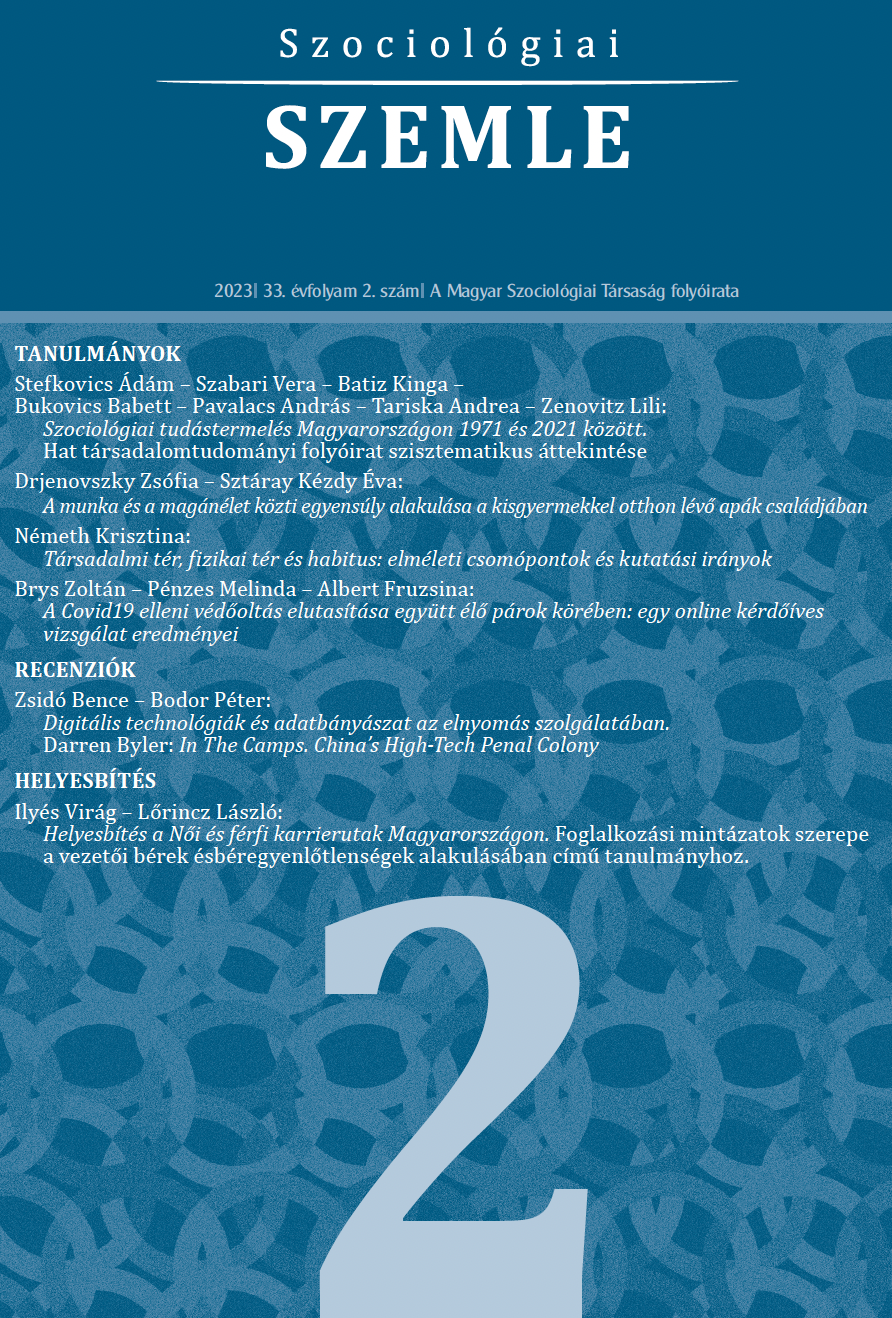Társadalmi tér, fizikai tér és habitus: elméleti csomópontok és kutatási irányok
Absztrakt
A térbeliség Bourdieu szociológiájában alapvető jelentőségű tényező, emiatt a habitus fogalmát napjaink mobilitás- és migrációkutatásai is intenzíven használják. Ezekben az empirikus kutatásokban ugyanakkor a társadalmi és a fizikai tér közötti kapcsolat, valamint e kétféle tér és a habitus kölcsönhatása gyakran tisztázatlan. A tanulmány a társadalmi és a fizikai tér analitikus megkülönböztetéséből kiindulva olyan elméleti csomópontokat keres Bourdieu és követői szociológiájában (Berger 2018, Reed-Danahay 2020), amelyek megmutatják e kétféle tér konstitutív viszonyát. A testiesült habitus, az otthon és az otthonosság, valamint a mozgás és mobilitás nemcsak összekötik e kétféle teret, hanem különféle elméleti összefüggésekbe helyezik a habitus fogalmát, így új empirikus kutatási irányokat is kijelölnek. Ezek az elméleti csomópontok a társadalmi pályaív fogalmán keresztül szintetizálhatók, ami részben feloldhatja a migráció és mobilitás közötti fogalmi dilemmát, valamint a habitus és a fizikai tér kölcsönviszonyának vizsgálata felé is utat nyithat (vö. Berger 2018). A kétféle tér konstitutív viszonyára, illetve a habitussal való kölcsönhatásaikra irányított figyelem dinamizálhatja a habitus olykor determinisztikusnak vélt felfogását.





